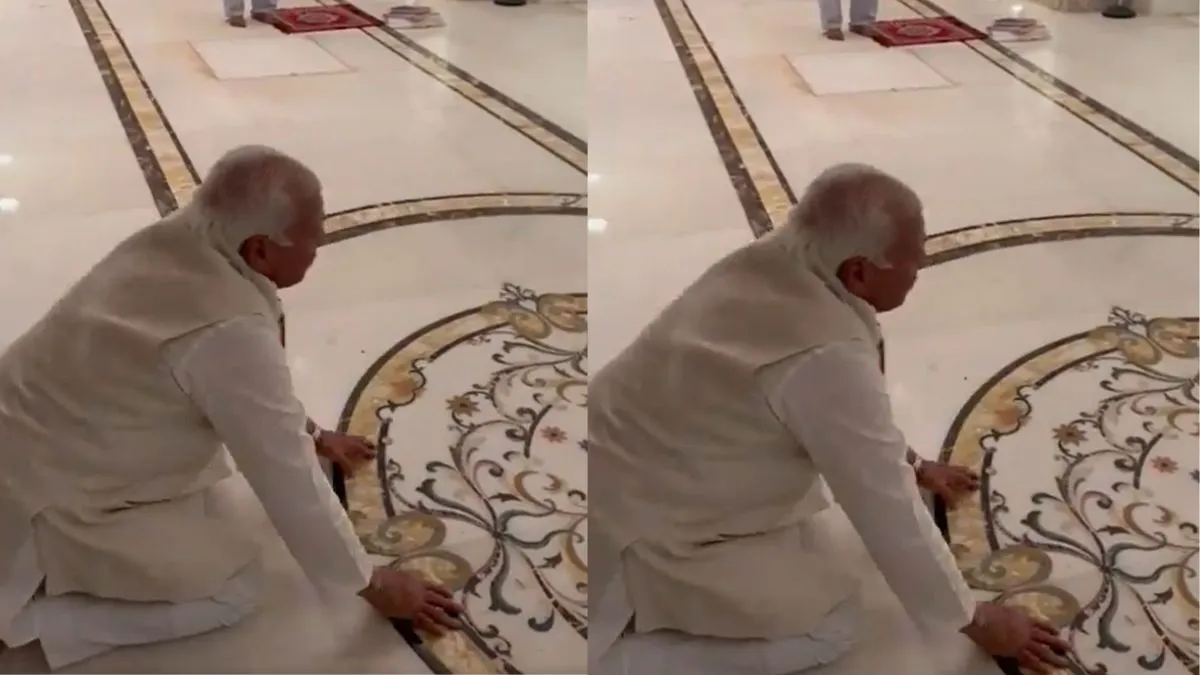- By Imran Zafar
- Thu, 09 May 2024 11:44 AM (IST)
- Source:JND
Kerala Governor Arif Mohammad Khan visited the Ayodhya Ram Temple on Wednesday, where he was seen offering respect at the temple amidst the chants of ‘Jai Shree Ram’. During his visit, captured in a video shared by Kerala Raj Bhawan, Arif Mohammad Khan was seen bowing before the idol of Ram Lalla while the chant 'Jai Shree Ram' could be heard in the background.
Arif Mohammad Khan’s Ayodhya visit marks his third to the temple town this year, a fact that he highlights with pride, emphasising the emotional and cultural significance of worshipping Lord Ram to him. After paying respects at the temple, the Kerala Governor expressed his reverence for Ayodhya and the Hindu deity Ram, stating that his visits are not merely a source of joy but also a matter of pride.
Hon'ble Governor Shri Arif Mohammed Khan at Prabhu Shri Ram Temple Ayodhya: PRO KeralaRajBhavan pic.twitter.com/wCzZCSirLt
— Kerala Governor (@KeralaGovernor) May 8, 2024
"I came to Ayodhya twice in January. The feeling at that time is the same even today. I have come to Ayodhya many times. It is not just a matter of happiness for us, instead it is a matter of pride, to come to Ayodhya and worship Shree Ram," the governor said while speaking to the media.
ALSO READ: Lok Sabha Election 2024: EC Imposes Ban On Exit Polls From April 19 to June 1
Arif Mohammad Khan, who has been a figure of controversy due to his conflicts with the Kerala government, spoke last week about the importance of integrating Vedic education into daily life. Khan has been vocal about his views advocating for a mindset of acceptance and respect over mere tolerance.
Last year, Arif Mohammad Khan quoted the founder of Aligarh Muslim University (AMU), Sir Syed Ahmed Khan, to articulate his stance on the term ‘Hindu’. Speaking at an event organised by Kerala Hindus of North America, Governor Khan quoted Sir Syed, challenging the notion that ‘Hindu’ is a religious label, instead defining it as a geographical identity. He argued that anyone born in India, consuming its produce and drinking its water has the right to identify as Hindu.


